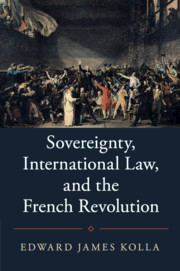Please hereby find the following
announcement for a conference on the French Atlantic and the “new legal history”,
to be held in Canada coming May.
ABOUT
The central aim of this conference is to
draw together a dynamic group of international scholars from France, Canada,
and the United States whose work stands at the interface of two emerging
sub-disciplines: the history of the French Atlantic and the “new legal history”
whose central vector insists on shifting the focus of the field beyond legal
structures and frameworks, towards an understanding of how law was actively
shaped and applied through the lives and experiences of ordinary men and women.
By uncovering and identifying the “voices” of slaves, indentured servants,
artisans, aboriginal people, women entrepreneurs, peasants, merchants, planter
elites and government officials, we intend to provide a richer understanding of
the ways in which French law was understood and integrated into the lives of
ordinary people involved in the 18th century colonial enterprise. We hope,
therefore, to open up new scholarly conversations which seek to reimagine the
French colonial world as less the product of metropolitan initiatives than a
process shaped by a multiplicity of actors.
PRELIMINARY
PROGRAMME
Monday,
May 28
4:00 p.m.: Pick-up at Pierre Elliott
Trudeau International Airport, Montreal, 4 p.m.
6:00-6:30 p.m.: Registration, Tap Room,
6:00-6:30 p.m.
6:30-8:30 p.m.: Dinner at Manoir Hovey, Tap
Room
8:00-8:30 p.m.: Welcome and opening remarks
8:15-9:30 p.m. Abenaki Hall: Keynote
address, Professor Julie Hardwick (University of Texas-Austin), “Edicts,
Archives, and Grassroots Voices: or how landladies, mendicant friars and young
intimate partners reconfigure narratives of state formation and religious reformation
in Old Regime Cities”
May
29, 2018
8:00 a.m.-9:00 a.m. Breakfast, Tap Room
Registration 8:30-9:00 a.m. Tap Room
N.B. All sessions will be held in Abenaki
Hall
9:00 a.m. -10:30 a.m.: Session 1 – Women,
the Economy and the Law
Chair: Cornelia Dayton (University of
Connecticut)
Laurie Wood (Florida State University)
“’It’s not easy to get paid in this
country’: women in the courts of Martinique”
Dominique Deslandres
(Université de Montréal)
“Les Catins de
Montréal ou le genre au Tribunals du Roi aux XVIIIe siècle”
Nancy Christie (University of Western
Ontario)
“’From this Common Collaboration’: Married
Women and Legal Hybridity in Quebec”
10:30 a.m. – 10:45 a.m.: Coffee break
10:45 a.m.-12:45 p.m.: Session 2 –
Rethinking the Agency of Racialized Peoples
Chair:
Jean-Pierre LeGlaunec (Université de Sherbrooke)
Eric Wenzel (Université d’Avignon)
“The Voice of the Litigant, the Voice of
the Spokesman? The role of Interpreters in Trials in Canada under the French Regime,
17th to 18th Centuries”
Sophie White (University of Notre Dame)
“Voices of Native Women in the French
Colonial Justice System
Jennifer Palmer (University of Georgia)
“‘She persisted in her revolt’: Between Slavery and Freedom in Saint-Domingue
Eric De Mari
(Université de Montpellier)
“Voix de kanaks,
voix de bagnards: d’un océan à l’autre (Nouvelle-Calédonie, Guyane française)
Lunch 12:45 p.m. – 1:45 p.m.: Tap Room
1:45 p.m.-3:15 p.m.: Sovereignty and Property in the French
Atlantic
Chair: Michael
Gauvreau (McMaster University)
Matthew Gerber (University of Colorado,
Boulder)
“Between Personal Property and Real Estate:
The Ambiguous Status of Slaves in the Early Modern French Atlantic”
Heather Freund (University of Illinois –
Urbana)
“Legal Pluralism and Inheritance on Grenada
after the Seven Years’ War”
Sue Peabody (Washington State University)
“Slaves as Witnesses, Slaves as Evidence:
French and British Prosecution of the Slave Trade in the Indian Ocean”
3:15 p.m.-3:30 p.m.: Coffee Break
3:30 p.m.- 5:00 p.m.: Session 4: Litigating
Whiteness in Saint-Domingue
Chair: David Gilles
(Université de Sherbrooke)
Meredith Gaffield (Johns Hopkins
University)
“Work, Whiteness, and Legal Practices in Pre-Revolutionary
St. Domingue”
Paul Cheney (University of Chicago)
“Noble Pride and Creole Gold: Elite
Conflict in Eighteenth-Century St. Domingue”
Marie Houllemare
(Université de Picardie – Jules Verne)
“Troubled Minds: Interrogations of Mad People before their
Legal Interdiction, Saint-Domingue, 18th Century”.
5:30 p.m.-6:30 p.m.: Wine and Cheese
Reception, Tap Room
Sponsored by the Omonhudro Institute of Early
American History and Culture
6:30 p.m.-9:00 p.m.: Dinner, Restaurant Le
Hatley
May
30, 2018
8:00 p.m.-9:00 p.m: Breakfast Tap Room
9:00 a.m-10:30 a.m.: Session 5 – The Many
Legalities of Servitude
Chair: Ollivier Hubert
(Université de Montréal)
Malick Ghachem (Massachusetts Institute of
Technology)
“Controlling Haitian History: The Legal Arsenal
of Moreau de Saint-Méry”
Arnaud Bessière
(Université Laurentienne)
“Les domestiques
face aux édiles au Canada sous le régime français : une justice conciliatrice? “
Clare Crowston (University of Illinois –
Urbana)
“A French apprenticeship system? Debating
the End of Slavery in the French Empire
10:30 a.m.-10:45 a.m: Coffee Break
10:45 a.m.-12:15 p.m.: Session 6 – Peasant Voices in Legal Archives
Chair: Clare Crowston (University of Illinois-Urbana)
Emily Rap (University of Chicago)
“Contesting the Seigneurial Corvée: Two
Generations of Peasant Litigation in Eighteenth-Century Angoumois”
Ollivier Hubert
(Université de Montréal)
“Entendre les
Mots d’une philosophie morale vernaculaire : justice d’Ancien Régime et culture
de l’honneur à Montréal au XVIIIe Siècle,”
Michael Gauvreau (McMaster University)
“Peasant Voices in an Age of Commercial
Expansion: Evidence from Post-Conquest Quebec”
12:15 p.m.-1:00 p.m.: Buffet Lunch, Abenaki
Hall, 12:15-1:00
1:15 p.m.:
Limousine Departure for Pierre Elliott Trudeau Airport
For more information, as well as the
registration link, see the website of the
conference









